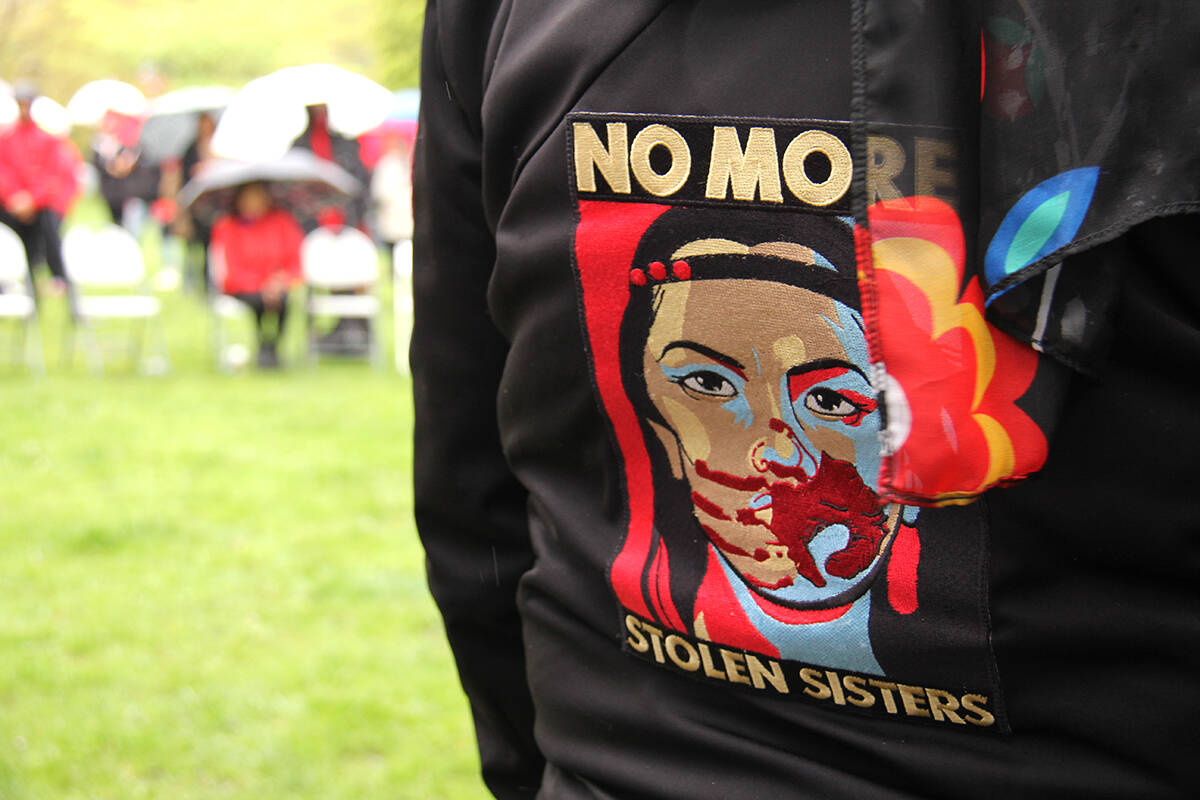Sunday marks Red Dress Day across Canada and First Nations leaders in B.C. are using it to call on the federal government to take action on the crisis of missing and murdered Indigenous women and girls.
Between 2009 and 2021, 490 Indigenous women and girls were killed in Canada, a number six times higher than that experienced by their non-Indigenous counterparts. Indigenous woman are also far more likely to go missing and to experience physical and sexual violence.
The systemic issues driving this crisis were highlighted in June 2019 when the National Inquiry into MMIWG released its final report, Reclaiming Power and Place. In it, the commissioners made 231 Calls for Justice, but few have been fully implemented in the nearly five years since.
On Sunday, the B.C. Assembly of First Nations, First Nations Summit and the Union of B.C. Indian Chiefs called on Canada to take action.
“It is shameful that the violence and fatalities of Indigenous women, girls and 2SLGBTQQIA+ peoples continue unabated in Canada and represent a tragic ongoing crisis that highlights the systemic injustices and vulnerabilities of First Nations communities. Canada must address the related issues and establish a clear timeline for implementing the 231 Calls for Justice,” BCAFN Regional Chief Terry Teegee said in a statement.
READ ALSO: Red dresses at B.C fashion show honour missing and murdered Indigenous women
READ ALSO: Indigenous domestic violence victim shares her story and her Red Dress Day display
Chief Marilyn Slett, the UBCIC secretary-treasurer highlighted the violence Indigenous women and girls are more likely face around labour camps. In the Reclaiming Power and Place report, commissioners said they were told by expert witnesses that “resource extraction can drive violence against Indigenous women and girls in several ways, including issues related to transient workers, harassment and assault in the workplace, rotational shift work, substance abuse/addictions, and economic insecurity.”
In a statement, Slett said it is essential to address these safety concerns, especially given the prevalence of labour camps in B.C.
Cheryl Casimer, a First Nations Summit political executive, emphasized the discrimination and mistrust Indigenous people are more likely to face when interacting with police and the justice system.
“This is evident in the biased treatment, inadequate investigations, and a lack of accountability for perpetrators.”
She called for urgent policing reforms.
B.C.’s parliamentary secretary for gender equity also marked the day with a statement.
“It is imperative that we continue to uplift and listen to the voices of Indigenous people and support self-determination of Indigenous communities in taking steps towards healing and justice. We also must address the root causes of violence, including colonialism, racism and misogyny,” Kelli Paddon said.
B.C. responded to the National Inquiry’s final report on MMIWG by developing its own strategy in June 2021 called A Path Forward, which commits to preventing, protecting and responding to violence against Indigenous women and girls. The province has funded it with $10.8 million, as of March 2023.
READ ALSO: Canada, Manitoba to develop Red Dress Alert for missing Indigenous women, girls
READ ALSO: ‘I just about became a missing, murdered woman’: Kelowna Red Dress march

